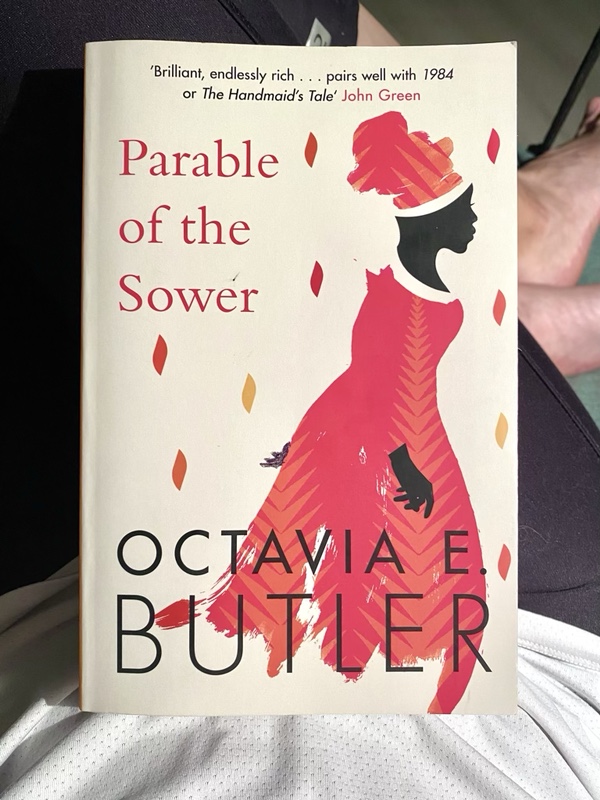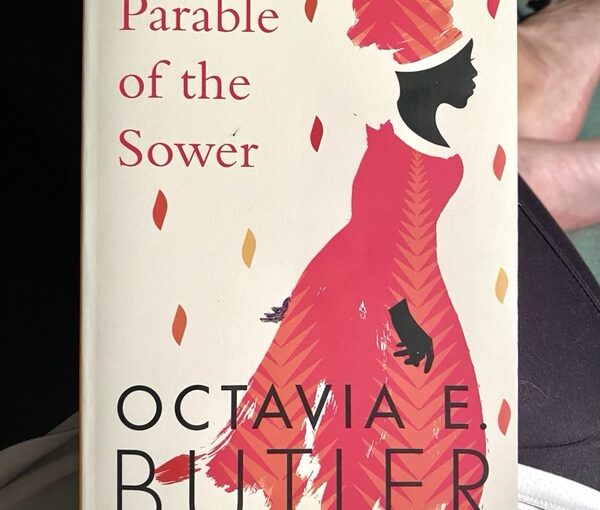★★★✩✩

(From the back of the book) We are coming apart. We’re a rope, breaking, a single strand at a time.
America is a place of chaos, where violence rules and only the rich and powerful are safe. Lauren Olamina, a young woman with the extraordinary power to feel the pain of others as her own, records everything she sees of this broken world in her journal.
Then, one terrible night, everything alters beyond recognition, and Lauren must make her voice heard for the sake of those she loves.
Soon, her vision becomes reality and her dreams of a better way to live gain the power to change humanity forever.
I gave this book 3/5 ⭐️ because it’s a dystopian novel about the future, written in the past, where that future is horribly plausible and is already happening. Also because it’s a story about strong people of color, strong women, human rights, climate change, greed of the wealthy who treat people like a commodity, and hope in mutual help and good sense.
It took me over three months to finish the book. I went weeks without reading it. I hope to get a sense of closure and that the series makes sense, by reading “Parable of the talents” which continues the heroine’s story.
I found the climate change dystopian context riveting (the story, written in 1993, takes place in 2024-2027.)
I did not care for the religious or philosophical aspect of the novel which I found unconvincing and I was surprised and disappointed how little resistance the heroine encounters as she assembles a following to create this religious or philosophical community.
I was disappointed that I found so little character development. That so many things are painstakingly detailed while others are glossed over. It gave me a fuzzy and partial visualization interspersed with very precise events narration. I would have liked more balance.
I think the author made the right choice to write this as a diary. It makes the shortcomings a little less worse. It also allows the young (15-18 year old) protagonist to boast, be a bit smug, and quite manipulative. I still found it hard to believe that however cunning and smart she is, she is met with hardly any resistance from her fellow travelers.
